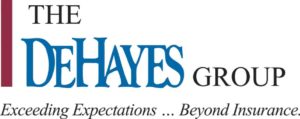
Dependent Care Benefits
Section 129 of the Internal Revenue Code (IRC) provides for dependent care assistance programs (DCAPs). A DCAP is an employer-sponsored benefit plan that allows employees to pay for certain dependent care expenses on a tax-free basis, up to a specified limit. DCAPs are also commonly referred to as dependent care flexible spending accounts, or dependent care FSAs. Common eligible DCAP expenses include babysitting and daycare costs incurred while the employee and his or her spouse are working.
This article provides a brief overview of DCAPs.
What is a DCAP?
A DCAP is an employer-sponsored program that helps employees with the cost of dependent care expenses. It establishes an account from which an employee may seek reimbursement for eligible dependent care expenses. In most cases, a DCAP account is funded by employees with pre-tax dollars through payroll deductions.
A DCAP may be offered within a cafeteria plan or as a separate plan. When a DCAP is offered within a cafeteria plan, it is subject to the same rules that govern cafeteria plans.
What dependent care expenses are eligible for reimbursement?
A dependent care expense is eligible for reimbursement from a DCAP if it is an employment-related expense. An employment-related expense must:
- Be primarily for the care of a qualifying individual or for household services attributable in part to the qualifying individual’s care; and
- Enable the taxpayer to be gainfully employed.
Expenses may only be reimbursed after the dependent care services have been performed. For example, if a dependent care provider requires payment at the beginning of the week, the employee may not seek reimbursement until the end of the week.
What household services are eligible for reimbursement?
Reimbursable household services are ordinary and usual services necessary to the maintenance of the household that is performed in and about the taxpayer’s home and attributable to the care of the qualifying individual. Services provided by chauffeurs, bartenders, or gardeners are not eligible for reimbursement from a DCAP.
What expenses for the care of a qualifying individual are eligible for reimbursement?
Expenses for the care of a qualifying individual are reimbursable where the primary function is to ensure the individual’s well-being and protection. Expenses for food, lodging, clothing, or education are not eligible unless these goods and services are incidental to and inseparably part of the care.
IRS regulations include an example where a preschool child care service includes meals for the students, and the cost of meals is not separated from the cost of child care. In this example, the cost of meals is considered incidental and inseparably part of the care. Therefore, the employee may seek reimbursement for the full cost of the preschool program without allocating any portion of the expense to meals.
If a portion of an expense is for the care of the qualifying individual and a separate portion is for another purpose, IRS regulations clarify that an allocation can be made to allow the employee to be reimbursed for the portion of that expense that is attributable to caring for the qualifying individual. However, an allocation is not necessary if the portion of the expense for the other purpose is minimal or insignificant.
IRS regulations provide the following guidance regarding specific expenses that are eligible for reimbursement under a DCAP and those that are not eligible:
Eligible Expenses
- Expenses for a nursery school, preschool, or similar program below the level of kindergarten are eligible.
- Expenses for before- or after-school care of a child in kindergarten or a higher grade are eligible.
- Day camp expenses, including specialty camps such as sports or computers, are eligible.
- Expenses for transportation provided by the dependent care provider to or from the place of care are eligible. The cost of transportation provided by anyone else is not eligible.
- Employment taxes paid to a caregiver are eligible.
- Expenses related to providing room and board to a caregiver may be eligible.
- Indirect expenses such as application fees, agency fees, or deposits paid to obtain dependent care services are eligible.
Ineligible Expenses
- Expenses for kindergarten or higher grade levels are not eligible.
- Expenses for overnight camps are not eligible.
- Payments to either the taxpayer’s spouse or to a parent of the taxpayer’s child who is not the taxpayer’s spouse are not eligible.
Who is a qualifying individual?
A qualifying individual includes:
- The taxpayer’s dependent who is under the age of 13*; or
- The taxpayer’s dependent or spouse who is physically or mentally incapable of self-care and who has the same principal place of abode as the taxpayer for more than half of the taxable year.
Individuals are physically or mentally incapable of self-care if, as a result of a physical or mental disability, they are incapable of caring for their own hygiene or nutritional needs, or require full-time attention of another person for their own safety or the safety of others. The individual’s inability to engage in any substantial gainful activity or perform the normal household chores or care for minor children does not in itself make the individual physically or mentally incapable of self-care.
Whether someone is a qualifying individual must be calculated on a daily basis. For example, upon a dependent’s 13th birthday, the employee may no longer seek reimbursement for dependent care expenses incurred after his or her dependent’s birthday. Employees should take into consideration the daily calculation requirement when making their annual elections.
What constitutes gainful employment?
Gainful employment may consist of service within or outside the taxpayer’s home, including self-employment, and time spent actively seeking gainful employment. Time spent actively seeking gainful employment includes time spent as a full-time student in an educational organization. Where the purpose of the expense is to enable the taxpayer and the taxpayer’s spouse to be gainfully employed depends upon the facts and circumstances of the particular case. Whether an expense was related to gainful employment is calculated on a daily basis.
If an employee is married, the employee’s spouse must be employed (including self-employed), be actively seeking gainful employment, or be a full-time student in an educational organization during the time that the employee seeks reimbursement of dependent care expenses.
IRS regulations provide the following guidance related to employment-related expenses that enable the taxpayer to be gainfully employed:
- Working as a volunteer or for nominal consideration is not gainful employment.
- Where dependent care expenses are paid on a weekly, monthly or annual basis, the taxpayer is not required to allocate expenses incurred during short, temporary absences from work, such as for minor illness or vacation.
- Part-time employees may only seek reimbursement for dependent care expenses incurred on the day in which the employee works. If the employee works at least one hour, dependent care expenses for that day are eligible.
- If a child care center requires payment for periods of no less than one week, but a part-time employee only works four days each week, the employee may seek reimbursement for daycare expenses equal to the weekly rate.
- Enrollment in night school constitutes full-time enrollment in an educational organization.
Is there a limit on how much money may be contributed to a DCAP?
Yes. IRC Section 129 allows a married employee who files a joint tax return or an unmarried employee to place up to $5,000 per calendar year in a DCAP. A married employee who files a separate tax return may only place up to $2,500 per calendar year in a DCAP.
The American Rescue Plan Act temporarily raises pre-tax contribution limits for a DCAP for the calendar year 2021, after Dec. 31, 2020, and before Jan. 1, 2022. For this calendar year, a married employee who files a joint tax return or an unmarried employee may place up to $10,500 in a DCAP. A married employee who files a separate tax return may place up to $5,250 in a DCAP.
Additionally, under the dependent care tax credit of IRC Section 21, an employee may also be eligible to deduct eligible dependent care expenses on his or her tax return, provided those expenses were not reimbursed through a DCAP.
What flexibilities do employers have in response to the COVID-19 pandemic?
Due to the COVID-19 pandemic, Notice 2021-15 from the IRS provides flexibility to employers offering FSAs or dependent care assistance programs. These flexibilities allow employers to:
- Provide flexibility for the carry-over of unused amounts from the 2020 and 2021 plan years;
- Provide flexibility to extend the permissible period for incurring claims for plan years ending in 2020 and 2021, allowing employers to extend the grace period to 12 months;
Provide flexibility for a special claims period and carryover rule for dependent care assistance programs when a dependent “ages out” during the COVID-19 public health emergency. For purposes of determining dependent care assistance that may be paid or reimbursed, the maximum age is increased from 13 to 14 years of age; and
- Allow certain mid-year election changes for health FSAs and dependent care assistance programs for plan years ending in 2021.





